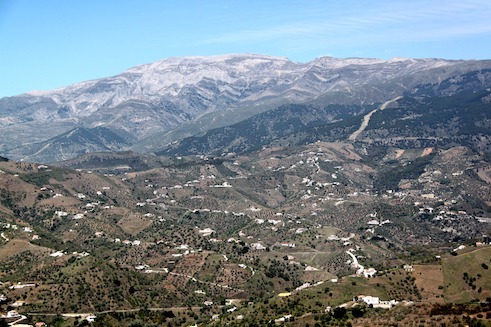
Ecologists in Action, through a press release, publicly expresses its satisfaction with the annulment by the Constitutional Court of fundamental aspects of Law 7/2021, of 1 December, to promote the sustainability of the territory of Andalusia, which demonstrates the unconstitutionality of the rules of the «Everything for development», which would allow, in practice, to urbanize the rural environment.
Likewise, the group says, «we congratulate the parliamentarians who presented the appeal of unconstitutionality, at the request of Ecologistas en Acción, belonging to the Confederal Parliamentary Group of Unidas Podemos, the Republican Parliamentary Group, the Plural Parliamentary Group and the Mixed Group, for what we consider a success of the initiative, which highlights even more, given the difficulties: the diversity of the parliamentarians, the State’s refusal to file an appeal despite the report of the State Attorney’s Office».
According to the Information Note of the Constitutional Court, despite rejecting a large part of the appeal, it has annulled and/or interpreted several fundamental questions affecting rural land, which were presented by the PP as star measures and which were pointed out by Ecologistas en Acción for their unsustainability and possible unconstitutionality, now confirmed: housing not linked to ordinary uses on rural land, mines as an ordinary use of protected rural land and without the need for planning permission, the disaffectation of certain livestock trails and the criterion that on rural land specially protected by sectoral legislation, it is not only necessary that the ordinary use is not prohibited by land and urban planning, but that the use in question must be permitted by such planning. Ecologistas en Acción presented allegations against all these aspects of the LISTA that have now been declared unconstitutional. However, the Andalusian Regional Government rejected them all without any legal argument.

Textually, the note of the Constitutional Court states that a clause of art. 22.2 of the LISTA has been declared unconstitutional «for lowering the level of environmental protection ex art. 149.1. 23rd EC that art. 13. 1 TRLSRU grants to rural land, insofar as the autonomous regulation allowed residential uses on this type of land; and the word «mining» in art. 137.2.f), for violating basic environmental legislation, insofar as it excluded such mining uses from the requirement of a municipal planning licence».
Article 13.1 of the Texto Refundido de la Ley del Suelo y rehabilitación Urbana states: «In the rural land referred to in Article 21.2.a), the powers of the right of ownership include the right to use, enjoy and dispose of the land in accordance with its nature, and it must be used, within the limits established by law and land and urban planning, for agriculture, livestock, forestry, hunting or any other use linked to the rational use of natural resources.
The use of land with environmental, cultural, historical, archaeological, scientific and landscape values that are protected by the applicable legislation shall always be subject to the preservation of these values, and…».
It is to be hoped that, pending an in-depth analysis of the text, the judgement, out of congruence, has also annulled the rest of the articles and paragraphs authorising this use of second homes on rural land.
Ecologists in Action has already warned that the new PP law is socially, environmentally and economically retrograde and that it distorts the principle of sustainability.
In addition to these questionings by the Constitutional Court, there is also the legal uncertainty caused by the number of aspects of the LISTA that have been questioned by the State Attorney’s Office. These aspects have been resolved by means of an interpretative agreement with the Andalusian Regional Government (BOE of 19.9.2022).
Ecologistas en Acción denounces the fact that parties that arrogate to themselves the monopoly of constitutionality approve unconstitutional norms, with full knowledge of the facts.
The Andalusian Regional Government has an opportunity to understand that not everything is valid in the promotion of urban speculation, and that the rural environment should be used for its own activities: agriculture, livestock, forestry and sustainable rural tourism; but never for the promotion of second homes that would end up urbanising the countryside.
